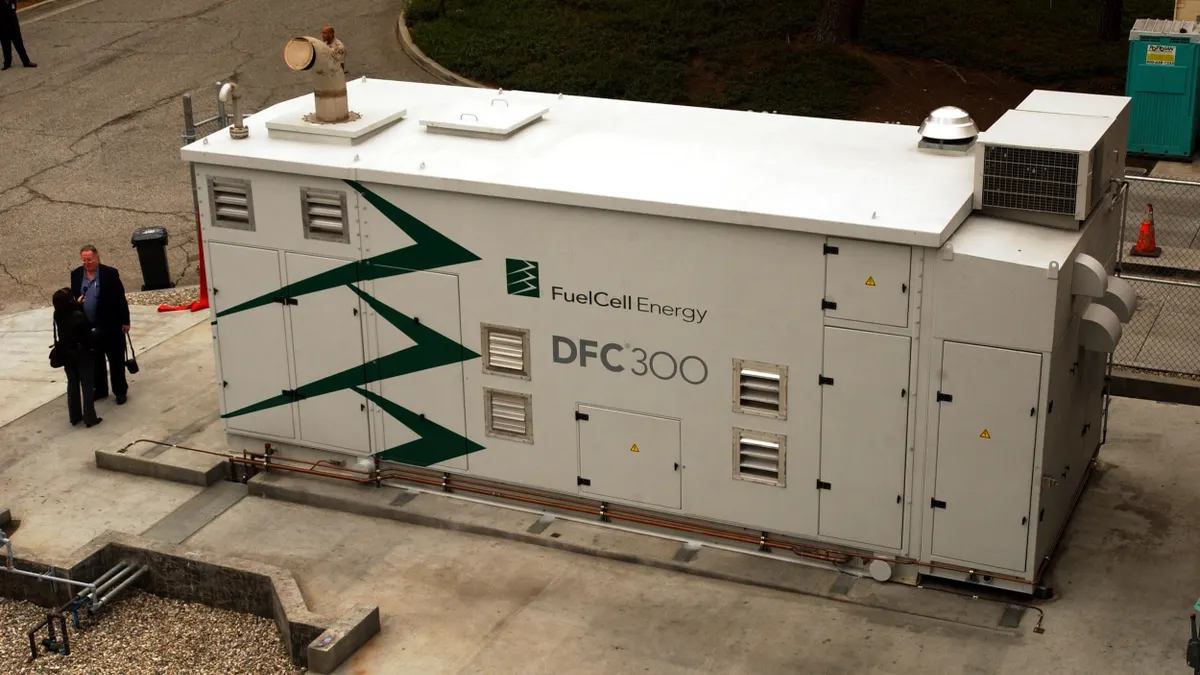Republicans in the House of Representatives passed a budget reconciliation bill Thursday that would further pare back most clean energy production, manufacturing and investment tax credits. The bill’s passage came after clean industry executives were looking for sympathetic members of the chamber to push for favorable changes to a version that passed the Ways and Means Committee earlier this month.
The bill’s passage immediately sparked alarm across the clean energy economy that has been supported by the credits, as companies and industry groups representing clean energy developers and responsible investors warned the bill would eliminate jobs, slow development and raise energy prices.
Scott Elias, vice president of policy and market development for clean energy developer and investor CleanCapital, said Thursday that the bill “threatens U.S. energy development and risks ceding the AI race and tech leadership to China.”
“Put simply, Congress is now one chamber away from passing a law that would dramatically increase project risk, reduce investment certainty, cancel previously announced projects and investments and stall clean energy deployment,” Elias said in emailed comments Thursday.
While the committee-passed bill text would have phased out most of the Inflation Reduction Act on a multi-year timeline, the House-passed “One Big Beautiful Bill Act” would repeal the IRA’s technology-neutral clean energy production and investment credits for any projects that don’t begin construction within 60 days of the bill’s enactment, according to an analysis by clean energy tax credit marketplace Crux. Non-nuclear projects that meet the accelerated construction timeline would see the credits eliminated entirely after 2028.
The nuclear energy industry saw positive changes from the committee text, including a carveout from the production and investment credits restrictions and having the full credit value available until 2031. However, other changes to transferability mechanisms, as well manufacturing production, carbon sequestration and clean fuels were also included.
The residential solar industry would be upended, with a credit eliminated for leased residential and community solar installs that began after Jan. 1 of this year, according to the Crux analysis. SunRun, the nation’s leading residential solar company, saw its shares fall nearly 40% on May 22, ESG Dive sister publication Utility Dive reported.
Additionally, a foreign entity of concern provision that some House Republicans recommended be adjusted to aid the U.S. clean energy industry instead saw its start date pushed up to 2026 in the House-passed bill.
After the bill’s passage, industry group Advance Energy United President and CEO Heather O’Neill said the bill “abruptly dismantles bipartisan, long-standing tax policy that has catalyzed billions in private investment for affordable, reliable energy.”
“If enacted as written, this bill will weaken our power system and send shockwaves throughout the U.S. economy by raising electricity prices, killing tens of thousands of jobs, and ceding energy dominance to China,” O’Neill said in a release. “This isn’t a scalpel, it’s a meat cleaver, and it will hurt us all.”
Climate nonprofit Ceres said the House-passed reconciliation bill is “unworkable” in its current form, as it “all but eliminat[es] clean economy incentives” and would freeze investment in “key sectors.”
“Unless redone, this legislation will raise prices across the country, resulting in less energy and more scarcity,” Ceres Senior Director of Federal Policy Zach Friedman said in an emailed statement May 22.
Industry groups and participants are hoping for more moderated changes to the current clean energy tax environment in the Senate version of the bill. Crux noted in its blog that “historically, the House version of a reconciliation bill represents the biggest change to law, with the Senate playing the role of narrowing the approach.”
After the committee-passed bill would have limited the window of tax credit transferability, the version that passed the House maintained the transferability mechanism through the lifecycle of the tech-neutral tax credits and nuclear production credits, in line with a recommendation from a group of House Republicans.
“Our view remains unchanged that the Senate will act as a significant moderating force for many of the energy and manufacturing credits, and their changes will be much lighter in touch,” Crux said.




















